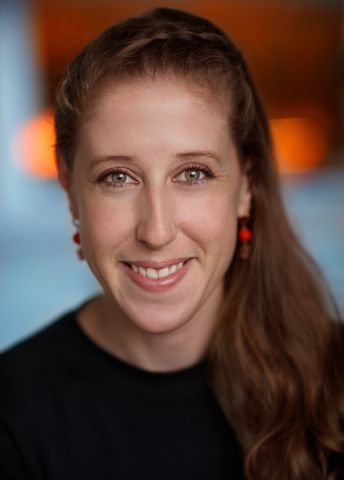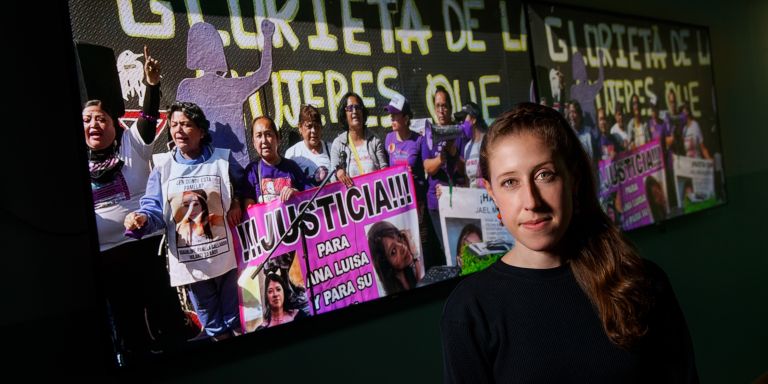
Julia Zulver
PhD, Sociology
Wallenberg Academy Fellow 2023
Institution:
Swedish Defence University
Research field:
Feminist activism in Latin America and the violence it faces


Wallenberg Academy Fellow 2023
Institution:
Swedish Defence University
Research field:
Feminist activism in Latin America and the violence it faces
In the wake of violent conflicts in Colombia, El Salvador and Mexico, women’s rights activists are trying to safeguard the gains they have achieved over the past decades. They do so even though they often face a risk of being threatened in various ways, sexually assaulted or even killed, as Zulver explains. She is a Wallenberg Academy Fellow and member of the Gender, Peace & Security research team at the Swedish Defence University. She previously held positions at the University of Oxford and Universidad Nacional Autónoma de México.
Zulver was born in Canada and grew up in New Zealand, before moving to the United Kingdom, where she received a PhD in Sociology at Oxford in 2018. Over the past 10 years she has conducted field studies on women’s movements for equality in Latin America. Her research has resulted in a number of books on the capacity of women at risk to resist violence and repression, focusing on feminist grassroots organizations.
As a Wallenberg Academy Fellow, she will be examining how various women’s organizations in Colombia, El Salvador and Mexico mobilize in post-conflict situations. She will also be ascertaining how these activists are developing strategies to protect the rights that they have gained – rights that are now under attack in a context of patriarchal backlash.
“After five decades of armed conflict, Colombia underwent a long peace process, with the Peace Accords signed in 2016. But armed factions continue to operate around the country. A peace treaty was signed in El Salvador in the early 1990s but the country then experienced a period of extreme gang violence for decades. Mexico is not usually considered to be a country in conflict, but there is widespread violence, with an exceptionally high murder rate. The rate at which women are being disappeared and murdered is out of control,” says Zulver.
Zulver explains that women’s leaders are attacked and killed in Colombia, not only because they are trying to create peace in their communities, but also because they are women taking on this role. This runs counter to the traditional world views held by armed groups, who consider that women should not play a part in the public arena.
In El Salvador the government has raided offices belonging to women’s rights organizations. Those activists and organizations face a growing numbers of internet attacks and threats from government trolls, partly because they are drawing attention to the violations of human rights committed by the government under its “state of emergency.”
And in Mexico mothers searching for children who have disappeared are often assaulted or murdered, or simply disappear. This is because their efforts for truth and justice highlight the dynamics of violence in the interaction between organized crime and state involvement.
Her project has three goals.
She has recruited academic-activist researchers in Latin America to identify the strategies that governments and their allies use to suppress feminist organizations. The researchers will also be documenting how feminist activists are adapting their tactics to surmount the political and cultural obstacles they face in this context of backlash. She and her team will also be examining the implications of the work carried out by women’s organizations for the quality of democracy more broadly.
We want to hear women describe in their own words the actors that threaten them so we can understand the tactics and strategies used by those actors.
In a separate project, Zulver is part of a team of researchers who have established a database in which they have documented “right-against-rights” actors in seven countries in Latin America. Among other factors, they are classifying actors attempting to push back progress made by women.
“These actors may be governments, but they are not the only ones we see driving pushback against women in these countries. Others involved include armed groups, religious organizations, political parties, and companies,” she says.
She explains that as a researcher, she undertakes ethnographic work in the field; she observes, conducts interviews, and speaks with focus groups.
“We want to hear women describe in their own words the actors that threaten them so we can understand the tactics and strategies being used by those actors,” she says.
Her basic thesis as a researcher is that “high-risk feminists” make rational and logical choices when they mobilize against violence and pushback.
“These women already live in high-risk environments, and have much to gain from teaming up with other women to achieve certain goals, even though the risk of violence can then be greater,” she says.
She also emphasizes the importance of having charismatic leaders capable of mobilizing collective action.
Zulver points out that gains and rights achieved by women are facing backlash at a global level.
“Although my research focuses on Latin America, it also has implications for other parts of the world. Given my post-conflict focus, I hope my findings could offer insights into other important conflicts, such as Ukraine and Palestine, in the future.”
Text Monica Kleja
Translation Maxwell Arding
Photo Magnus Bergström